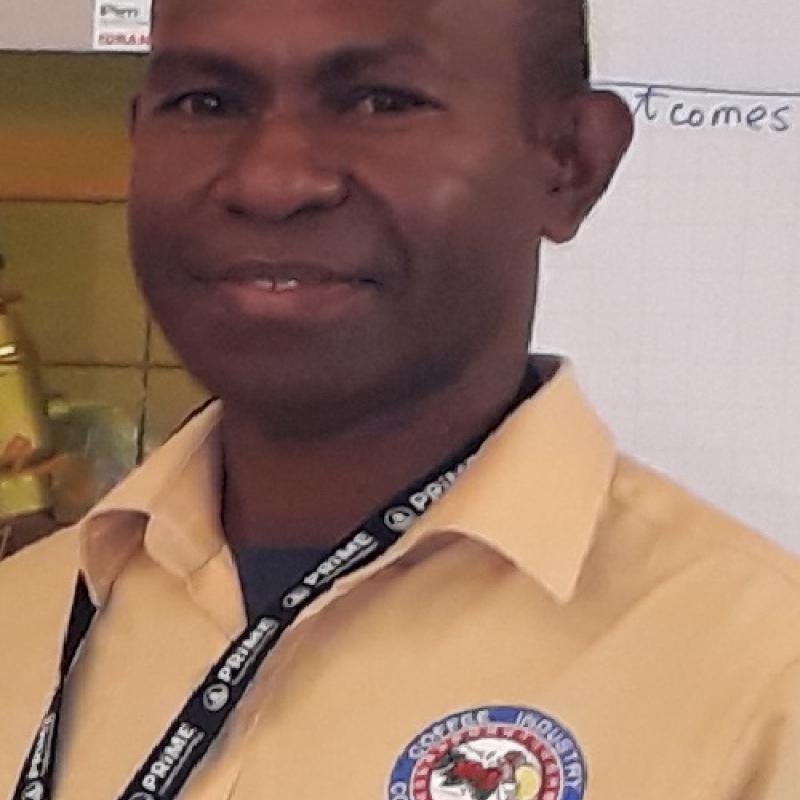Richard Alepa has a Masters of Science in Agriculture. He is a member of Australian Evaluation Society (AES6812). I have obtained Certification in Program for Rural Monitoring and Evaluation for Rural Development (PRiME) in 2019 from Centres for Learning Evaulation and Results (CLEAR) and International Fund for Agriculture Development (IFAD) in 2019. Richard has more than 5 years of research and development (R&D) related work experience on farming systems in the highlands of PNG. Further 5 years 3 months as an M&E and Knowledge Management Practitioner (Indiviudual Consultant). I'm currently employed as Senior Monitoring, Evaluation and Knowledge Managemnt Practitioner with Fresh Produce Development Agency for an IFAD financied Market for Village Farmers (MVF) project in Papua New Guinea. Formerly, I was empolyed as an M&E Practitioner (IC) with the Productive Partnership in Agriculture Project (PPAP) - Coffee Component with Coffee Industry Cooperation funded by World Bank and IFAD. Both projects are jointly financied by Government of Papua New Guinea. My work with MVF and PPAP has involved in designing a user friendly and comprehensive Monitoring & Evaluation Standard Operating Procedures (SOP) to keep track of project activities at output level to deliver outcomes and report impacts on the livelihood of the participating farmers for Coffee, Fresh Produce and Galip Nut Value Chain systems in the target project areas. The SOP design is systematically link to Management Information System (MIS). His interest areas are in farming system research & development, biometry (statistics), project management, participatory monitoring & evaluation and learning, Management Information System (MIS) and climate change & adaptation. I'm also excited to cross learn and share my experience about my work with other members.
Richard [user:field_middlename] Alepa

Richard Alepa
M&E and Knowledge Management Practitioner
Market for Village Farmers, Fresh Produce Development Agency
Papouasie-Nouvelle-Guinée
Richard Alepa
M&E and Knowledge Management Practitioner Market for Village Farmers, Fresh Produce Development AgencyD’après mon expérience de travail dans le domaine du suivi et évaluation, cela dépend du contexte du projet et, dans une certaine mesure, de la livraison de biens et de services aux bénéficiaires cibles ainsi qu’à ceux qui ne sont pas dans les limites du projet. Ainsi, ces 3 outils viennent à l’esprit et sont parfois déroutants : Cadre logique, cadre de résultat et théorie du changement. Bien que, la compréhension théorique de ces outils sur papier semble simple et comment ils sont exploités dans le système de fusions et acquisitions est acceptable, toutefois leurs applications pour fournir des résultats fondés sur des preuves n’est pas claire. De plus, à quel niveau de rapport sur les résultats, est-ce que je fais un adaptation du cadre logique et du cadre de résultat et de la théorie du changement pour permettre une meilleure compréhension du processus? Ce que je fais dans mon projet, c’est que j’adapte le cadre logique et de résultat à l’étape de l’évaluation des processus (commentaires, activités et extrants) pour comprendre le flux des implémentations et la TdC au niveau d’impact (sortie, résultats et impact) afin de comprendre le changement comme résultats de l’intervention. Je serais heureux d’entendre des experts.